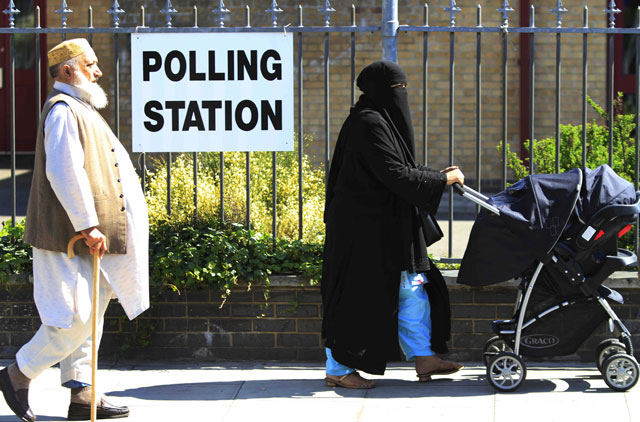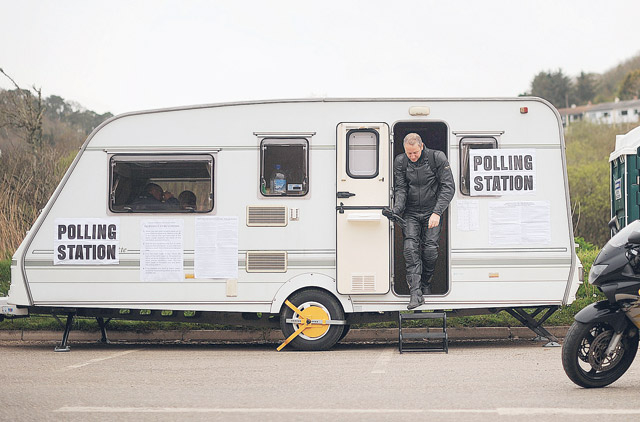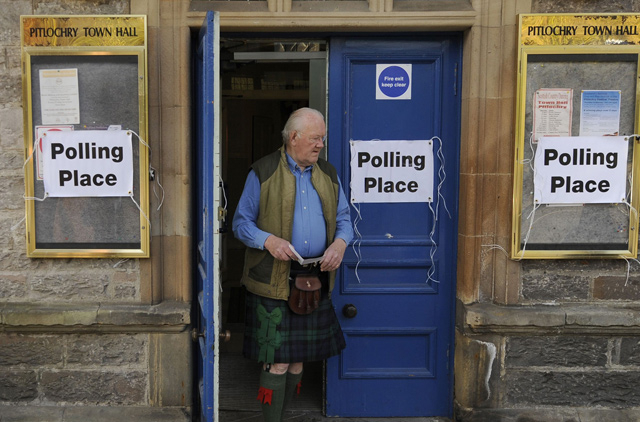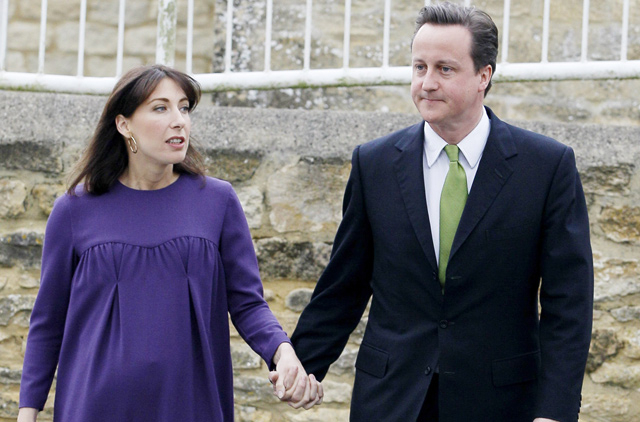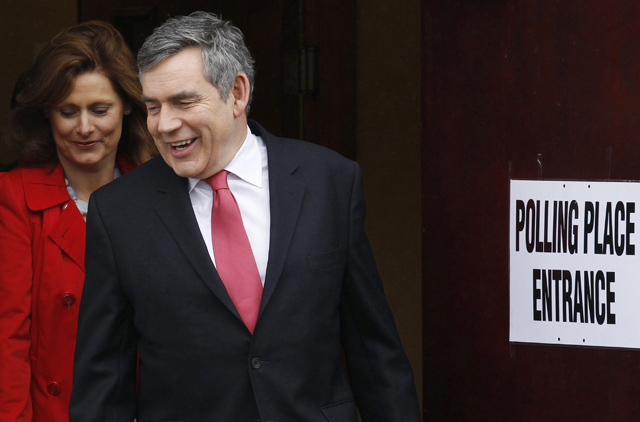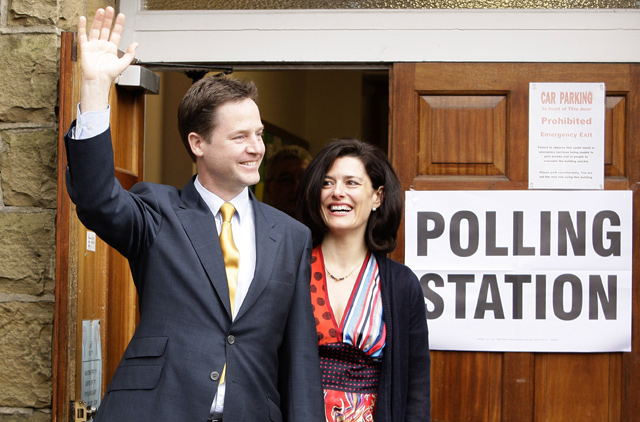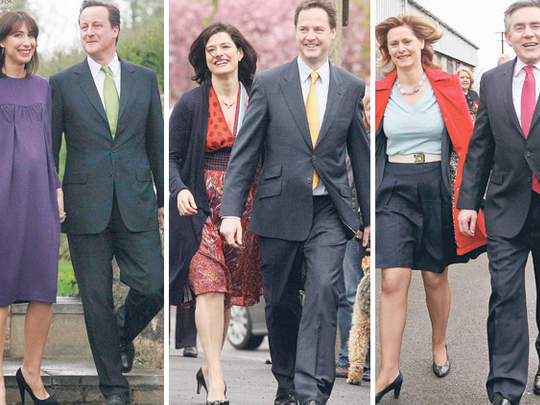
London: As the British public cast their votes on Thursday, the latest polls suggested the main opposition Conservatives will come first, with the governing Labour Party second and the Liberal Democrats third — although the Lib Dems surged into second place temporarily during the campaign.
The election is so close it could yield an uncertain outcome and prolonged political turmoil, as well as the prospect of a hung parliament.
Prime Minister Gordon Brown was trailing in the polls against Conservative David Cameron, with Nick Clegg of the Liberal Democrats gunning for a historic strong showing that could catapult his party into the ranks of the heavyweights.
But polls also suggested there was a good chance no party would win the absolute majority needed to govern effectively.
Safest leader
Brown continued with his line that he is the safest to lead his nation to economic salvation. Cameron finished off his poll drive with a 36-hour marathon crisscrossing the country, hoping to bring the Conservatives back to power after 13 years in the political wilderness.
The Liberal Democrats have found new momentum under Clegg.
Britain's first-past-the-post system means that the party with the greatest proportion of votes does not automatically win the greatest number of seats in the House of Commons.
This British election has already been historic. The country's first-ever television debates offered Clegg rare equal billing with Brown and Cameron.
In the event of a hung Parliament, Queen Elizabeth II should offer the sitting prime minister the first chance to try to form a government — even if his party wins fewer seats than the opposition.
In such a scenario, Clegg could find himself with the balance of power. The backing of his expected bloc of about 80 seats in a coalition would give Cameron or Brown the ability to form a government and pass laws.
Louise Hyams, Conservative candidate, canvassed the public as they filtered in to cast their votes at a polling station in Westminster.
"It's been an unpredictable few weeks but I think at the last minute there's been a swing back to the Conservatives," she told Gulf News.
While she said the turnout had been good, groups of tourists seemed to be more interested in the polling station than voters.
— With inputs fromagencies


